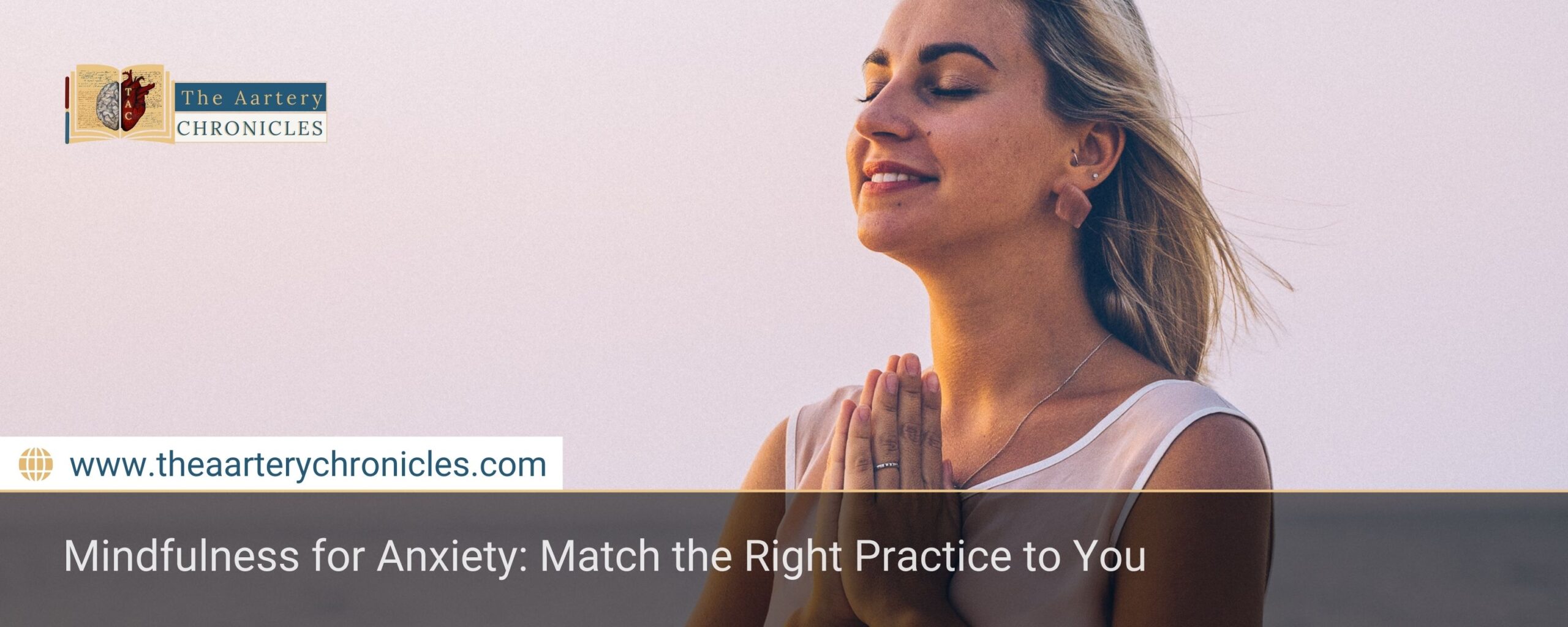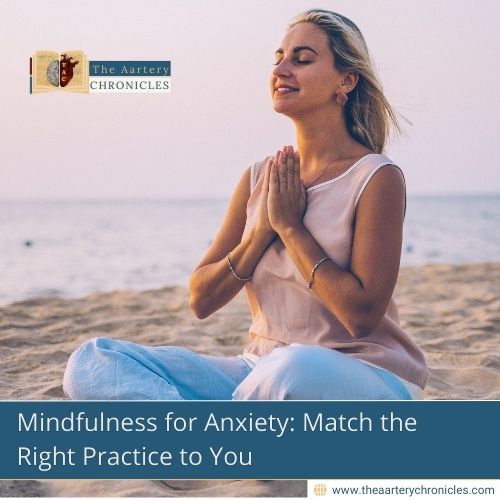

Mindfulness for Anxiety: Match the Right Practice to You
Summary: Mindfulness isn’t one-size-fits-all. Depending on the type of anxiety you experience, mental worry or physical tension, different mindfulness techniques like focused attention or open monitoring can help calm your mind and body. In this blog, discover expert-backed insights on how to match the right mindfulness practice to your anxiety type and improve your mental well-being.
How Mindfulness Can Calm Your Anxiety -When Done Right
Are you feeling anxious about work, money, or the state of the world? You’re not alone and there’s a science-backed tool that can help: mindfulness. But here’s the catch: not all mindfulness techniques work the same for everyone. The key is finding the right type of mindfulness that suits your type of anxiety.
In this article, we explore what researchers at WashU’s Mindfulness Science & Practice cluster have uncovered: a new approach that matches mindfulness techniques to different types of anxiety. If you’ve ever wondered which practice works for your stress, keep reading, you’ll learn exactly that.
What Is Mindfulness and How Can It Help?
Mindfulness is all about paying close attention to the present moment, without judgment. And it’s been proven to help people manage anxiety, according to Resh Gupta, a postdoctoral research associate at WashU.
“A lot of research has shown that mindfulness can reduce anxiety symptoms,” said Gupta.
While millions practice mindfulness daily and swear by its calming effects, researchers continue to explore how it works and which techniques are best for specific types of anxiety, whether that’s occasional worry or chronic anxiety disorders.
The Science Behind Mindfulness and Anxiety
In a paper published in Neuroscience and Biobehavioral Reviews, Gupta and her co-authors propose a new framework that personalises mindfulness practices based on the kind of anxiety a person is experiencing.
“We all experience anxiety, but it can manifest in many different ways,” Gupta noted. “It’s a tough problem to pin down.”
Their research aims to offer more precise treatment options by understanding which form of mindfulness works for which anxiety profile.
How Mindfulness Influences the Brain
Mindfulness seems to improve cognitive control, your brain’s ability to manage thoughts and actions toward a goal. This function is often disrupted in anxious individuals.
“Worry occupies a lot of space in the brain’s working memory system,” Gupta explained. “This is where your goals are stored.”
In contrast, mindful individuals tend to perform better on cognitive tasks, thanks to their enhanced mental control. Neuroimaging studies have confirmed that mindfulness meditation positively affects brain areas responsible for this control.
Matching Mindfulness to Your Anxiety Type
Not every technique works for every kind of anxiety. Here’s what researchers suggest:
If You’re a Chronic Worrier: Try Focused Attention
Do racing thoughts keep hijacking your day? You may benefit most from focused attention meditation.
“Focused attention teaches you to choose an anchor, such as your breath or a sound,” Gupta said. “You keep bringing your attention back to that anchor every time your mind wanders.”
This helps break the loop of worry by training your brain to stay in the here and now.
If You Feel Physical Symptoms: Try Open Monitoring
If your anxiety feels more physical, consider open monitoring meditation:
- Racing heart
- Sweating
- Tightness
“Instead of focusing on one thing, such as the breath, you can observe all internal and external experiences from moment to moment in a non-reactive, non-judgmental way,” Gupta shared.
This method helps you become aware of sensations and feelings without reacting to them—an essential skill for calming physical anxiety.
Access Mindfulness Resources at WashU
Whether you’re new to mindfulness or looking to deepen your practice, WashU’s Mindfulness Science & Practice cluster offers
- Talks
- Events
- Training sessions
“We’re dedicated to helping the WashU and greater St. Louis community get access to tools to learn about mindfulness science and practice,” said Gupta.
These resources can help anyone, from students to professionals, learn the right ways to bring mindfulness into everyday life.
Final Thoughts: Choose the Right Path to Inner Calm
Mindfulness isn’t one-size-fits-all and that’s actually empowering. By choosing a mindfulness practice tailored to your anxiety type, you gain a practical, science-backed way to take control of your mental well-being.
“People have different options they can choose from,” said co-author Todd Braver. “It becomes easier to find one that best fits your particular temperament, concerns, or current situation.”
So the next time anxiety creeps in, don’t just breathe – breathe the right way for you.
Inputs from various media sources.

Dane
I am an MBBS graduate and a dedicated medical writer with a strong passion for deep research and psychology. I enjoy breaking down complex medical topics into engaging, easy-to-understand content, aiming to educate and inspire readers by exploring the fascinating connection between health, science, and the human mind.








